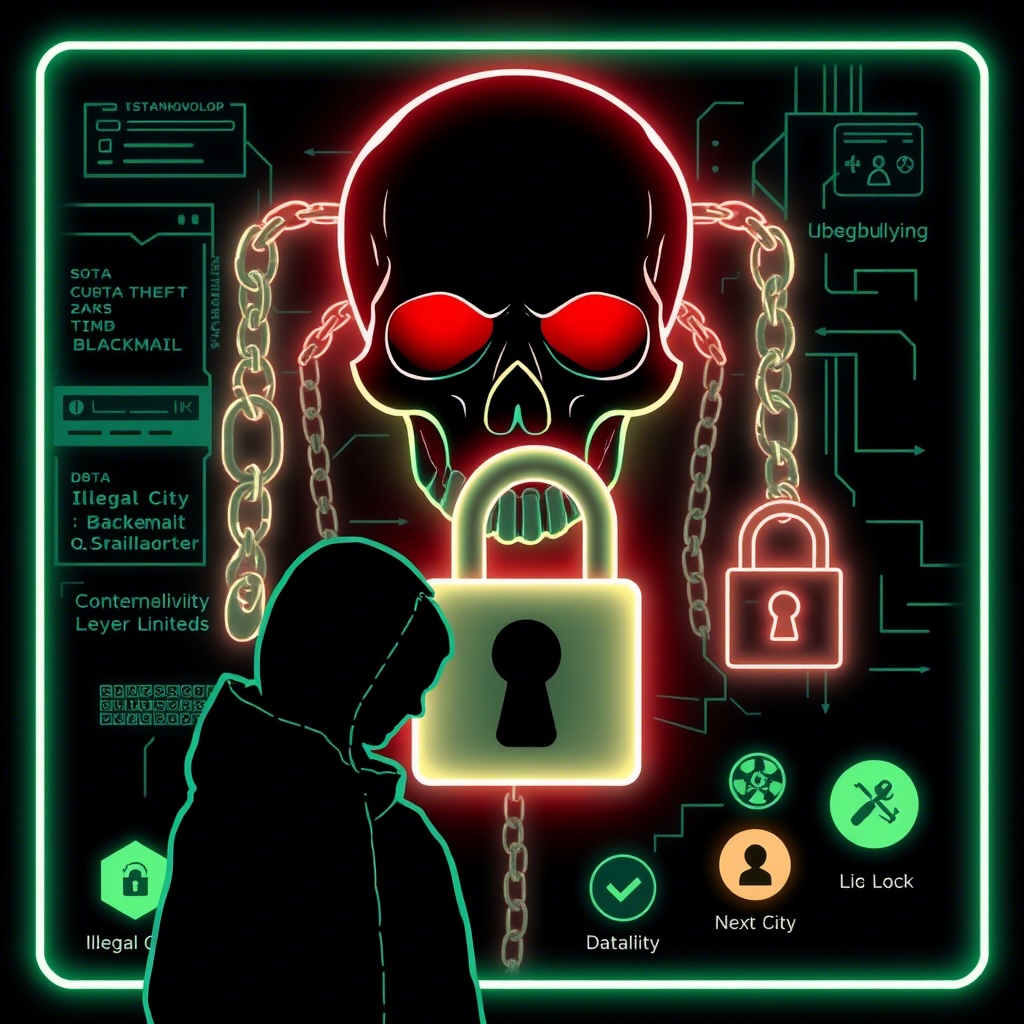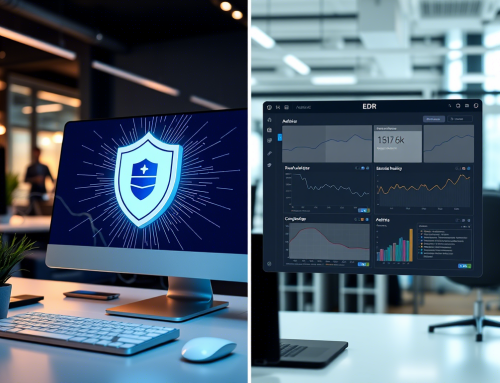Behind the veil of anonymity, the dark web has evolved into a breeding ground for malicious activities that harm individuals and society at large. Emerging trends in cybercrime reveal an alarming shift—cyberbullying and blackmail have turned into lucrative business models, thriving on stolen personal data to fulfill goals of harassment, manipulation, and exploitation.
This blog dives deep into how platforms on the dark web, such as Illegal City, Jax, and Next City, facilitate these campaigns, who benefits from these unethical practices, and the devastating impact they have on society. More crucially, it highlights the necessity for stricter regulations, enforcement, and individual vigilance.
The Dark Web’s Role in Cyberbullying
Cyberbullying is no longer confined to social media platforms; it has found a profitable, malicious home on the dark web. Panels like Illegal City, Jax, and Next City operate as organized hubs for cyberbullying campaigns. These platforms provide services that enable users to launch harassment attacks with impunity.
The Mechanics of Cyberbullying Panels
Here’s how these panels work:
- Fake Reports and False Claims – Users can create fabricated reports to tarnish a victim’s reputation.
- Harassment Messages – A simple click allows users to send threatening or humiliating messages en masse, spreading fear and ruining lives.
- Blackmail Services – These platforms use stolen personal data to blackmail individuals, often targeting sensitive details or relationships.
For instance, one such panel allows users to input a victim’s phone number and send malicious messages to their entire contact list. Imagine the dread and helplessness a victim might feel when their private life is mercilessly invaded at this scale.
Real-Life Example
A cyberbullying incident involving a professional in the legal sector highlights the dark reality of these platforms. The victim’s stolen data was used to fabricate damaging claims, triggering a cascade of humiliating messages to colleagues and family members. The emotional impact left the victim contemplating resignation, fearing irreparable career damage.
Who Benefits From These Platforms?
While victims bear the brunt of these attacks, an unsettling reality has emerged—certain parties are exploiting cyberbullying platforms for personal gain.
Unethical Practices by Lawyers and Politicians
Some lawyers leverage dark web panels to intimidate opposing parties or extract favorable outcomes in legal disputes. Meanwhile, unethical politicians use cyberbullying and blackmail to silence critics or manipulate adversaries, tarnishing reputations to secure wins.
Real-Life Case Study
Take the recent case of a rising political candidate who became the victim of coordinated cyberattacks executed through a dark web panel. Stolen emails and private messages were manipulated into false narratives, circulated widely through harassment campaigns. Although these actions were later exposed, the long-term damage to the victim’s mental health and career was irreversible.
The Economic Model Behind Cyberbullying
How do these platforms profit? Stolen personal data serves as the fuel that powers their illegal operations. The growing demand for custom harassment and blackmail schemes has turned these panels into thriving businesses.
The Role of Stolen Data
Personal data theft provides a continuous supply of ammunition for these schemes. Full names, addresses, phone numbers, and even sensitive financial details are sold in bulk to perpetrators seeking to target specific victims.
Profitability of Custom Campaigns
The dark web thrives on anonymity, enabling buyers and operators to transact without fear of exposure. Panel operators charge premium rates for personalized harassment campaigns, extending services into niche areas like reputation damage, fake reviews, or character assassination.
Real-Life Example
Example statistics revealed that a single targeted harassment campaign on a dark web panel could generate upwards of $5,000 for the perpetrators. When combined with the volume of similar orders across these platforms, it’s evident why cyberbullying has become a disturbingly profitable business vertical.
The Ripple Effect on Society
The harm caused by these platforms extends far beyond their immediate victims. Families, communities, and organizations feel the ripple effects when cyberbullying escalates unchecked.
Mental Health Consequences
Victims of these attacks often suffer from anxiety, depression, and PTSD. Studies have shown that cyberbullying can increase the risk of suicide, especially among vulnerable populations like teenagers and young adults.
Breakdown of Trust
When stolen data is weaponized for harassment or blackmail, it erodes trust in digital platforms and institutions designed to keep information secure. These attacks also strain families and communities as they grapple with the emotional toll and cumulative trauma inflicted on victims.
Real-Life Example
The story of a high school teacher targeted by cyberbullying serves as a stark lesson. After her personal information was stolen and published online, her students and colleagues received falsified messages claiming misconduct. The situation culminated in her temporary removal from teaching duties, further straining relationships with her students and peers.
What Can Be Done?
The fight against cyberbullying and blackmail on the dark web requires a collective effort from individuals, policymakers, and cybersecurity experts.
Stricter Regulations and Penalties
Governments must impose stringent laws targeting the operators behind these panels. Punishments should extend to those who purchase services from such platforms to deter demand. Collaboration between international authorities is critical to dismantling the infrastructure these panels rely on.
Actions for Cybersecurity Experts
- Monitoring Threat Patterns – AI algorithms can help trace suspicious activity early in the process to identify trends and shutdown dark web operations.
- Public Awareness Campaigns – Cybersecurity organizations play a vital role in educating people about the risks of data theft and how to safeguard personal information.
Recommendations for Individuals
- Use strong, unique passwords for all online accounts to prevent data breaches.
- Enable two-factor authentication to add an extra layer of security.
- Regularly monitor your digital footprint to identify and address vulnerabilities.
We Must Act to Curb the Threat
The rise of cyberbullying and blackmail as a business model on the dark web is a sobering reality. It preys on stolen personal data, causing immense harm to individuals and communities while enriching unscrupulous operators. The emotional toll, mental health impacts, and societal breakdowns underscore the urgent need to address this issue.
It’s time for all of us—whether tech enthusiasts, cybersecurity experts, educators, or policymakers—to step up and take action. Advocate for stricter regulations. Educate yourself and others on cybersecurity best practices. Together, we can work toward a safer, more secure digital landscape for all.





